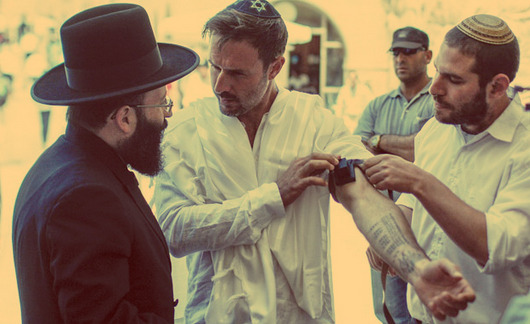The not so talked about, pushed around crisis: Real Men.

Enter: Reject Modernity, Embrace Masculinity.
In today's modern society there is a terrible crisis of real men (and women). Masculinity has been pushed over and seen as a “toxic trait” hence the term “toxic masculinity”. But what the modern world fails to acknowledge is that REAL masculinity is not the toxic trait. The toxic trait is therefore, the lack of masculinity.
You see, this term of “toxic masculinity” is far more dangerous than the trait itself. When we normalize the usage of this term we are essentially calling masculinity toxic. When modern society uses this term we are associating masculinity in its fullness as toxic and rendering men who are masculine, toxic. Which is far from the truth.
When we take away masculinity and tell men they need to be feminine, the women become masculine. (As we see in today's modern society) In today's modern society we can see the product of this. If we analyze, we see men who no longer know how to be masculine, and women who no longer know how to be feminine. An esthetic nightmare, but most importantly a crisis. The one thing the feminist movement forgot in their movement is biology. You cannot erase the archetypes of the real man, because they are inside everybody.
In each man there are 4 masculine archetypes:
The King,
The Warrior,
The Magician,
and The lover.
The king, don't you remember when you watched Lion King for the first time? There was something inside of you that felt for Mufasa. Something inside of you that yearned to be him, wasn't there? As Mufasa raises his son through trial and error alongside being a partner to his spouse, and most importantly, a strong and wise leader to his people. Who was even willing enough to die for them, his bravery, his wisdom, his leadership, this is no other than the King archetype in its fullness.
The King
The King archetype is, in truth, the ruler. The man who wants and expects respect. The man who wants to lead, to be remembered, who wants to see his kingdom thrive, even if he needs to sacrifice himself in order to achieve that. An example of the king archetype would be the holy prophet of islam, Prophet Muhammed (Peace be upon him). Who was the embodiment of a king and every masculine archetype. An example of this king is that he would often, or always starve so that his people could eat. He would put himself in danger so his people could be safe. He would charge ahead, first person in battles, leading the early muslims whilst charging ahead. Prophet muhammed was the embodiment of the king archetype, i'd be insincere if i didn't say that the king was based off of him.Though, What we see today though is a different archetype called “the shadow king” . Also expressive is the sub archetypes within this archetype: “the tyrant” “the highchair toddler” and “the weakling” are often the villains in comics or superhero movies such as Thanos. Funny though these “shadow king archetypes” are actually what we see around us today. Modern society connects manliness to the shadow king but i don't blame them, with the lack of kings we don't have much of an example set for true masculinity. Lastly, in the most important archetype I must address the king of all kings, “Al-Malik”. The islamic God has a plethora of names, but for the most important archetype i will address one of his names specifically “Al-Malik” which literally means “The king”. I will later produce another article on manifesting the names of God which will touch on this topic.
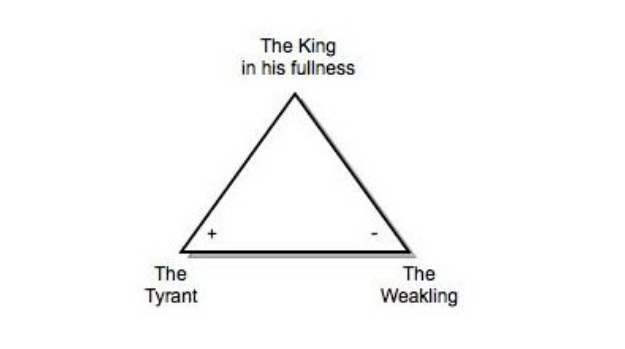
The warrior
The warrior also known as the protector, is most often associated with power, physical strength and prowess, maintaining composure in high stress, harnessing aggression for positives, and quick but rational thinking, to name a few. Most times we see warriors occupy jobs such as soldiers, police, firefighters, coastguards, and others of similar natures. An example would be Ares, or, the ancient greek God of war: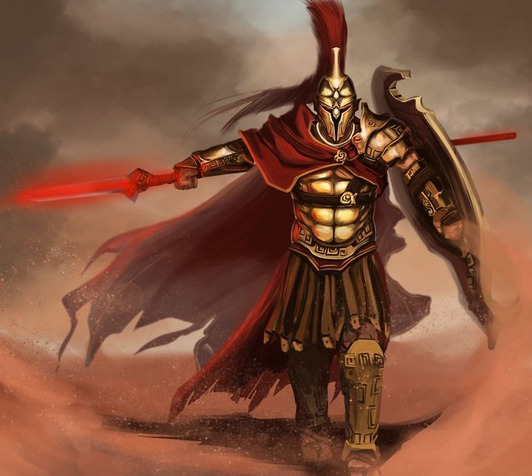
In Ares we see very typical traits of a warrior, which include:
Confidence
Aggression
Courage
Determination
&
Discipline.
Another example of a warrior is Hussain ibn ‘Ali. In the tragedy of Karbala, or the martyrdom of Hussain ibn ‘Ali (Peace be upon him) Hussain sets out to the city of Karbala, Iraq with a small army to stand up against Yazid, a corrupt government leader at the time. In this story, Hussain truly embodies the saying “Stand for what you believe in, even if you have to stand alone” as he and 72 of his soldiers stood up against Yazid with a few thousand soldiers. Hussain fought alongside his family and friends, where no one survived. Hussain knew he would die, so did his family. But to Hussain, his message meant much more than receiving the glory of this life, so on the 10th of the holy month of muharram, Hussain declared death as his guardian angel.
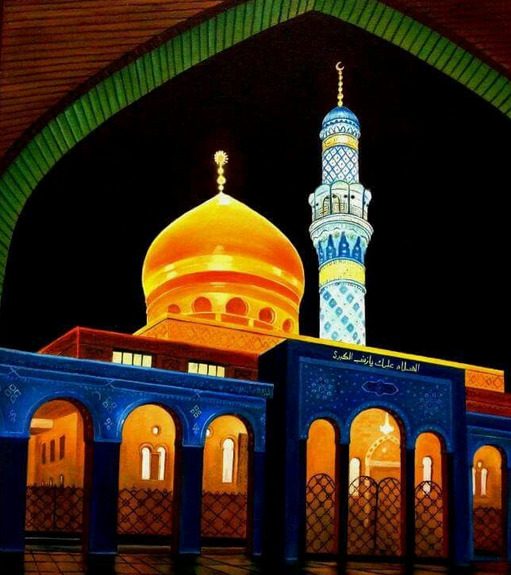
The magician.
When you first think of a magician you probably think of harry potter or cheesy magic tricks at a carnival. But a true magician is so much more. The magician archetype is associated with mystery, intellect, and transformation. Magicians are often visionaries, thinkers, and creators of sacred space. To best identify this archetype, I ask you to think of the traditional villages with an elder who seemed to know what most people did not, who had sharpness and intellect that others did not, the elder who everyone would go to if they had a problem (often inside of a sacred space). Believe it or not this magician is inside of you too. Magicians often provide guidance, protection, and support. Typically very charismatic, fascinating, and sophisticated.These are the things that the modern world wants to hide from you. They don't want you to know that there is a magician inside everyone. You're probably most familiar with this archetype as Darth Vader, Gandolf, or Loki. But i want to introduce a personal favorite, ‘Ali ibn Abi Talib who once said “There is no wealth like knowledge, no poverty like ignorance.” ‘Ali, in no way can be summed up in this short pamphlet. But at the very least I want to enlighten you, so you too can know that true Men once walked this earth. ‘Ali (Peace be upon him) was a courageous soldier, a notable ascetic, a wise king, a prominent scholar,and a remarkable orator.
Ali’s wisdom was unmatched after the wisdom of the holy prophet of Islam Prophet Muhammed (peace be upon him). The holy prophet of islam once said “I am the city of knowledge and Ali is its gate; therefore, whoever wants the city should enter through the gate.” And i will end this with another quote of master Ali ibn abi talib to once again express his wisdom: “Do not take someone’s silence as his pride, perhaps he is busy fighting with his self”
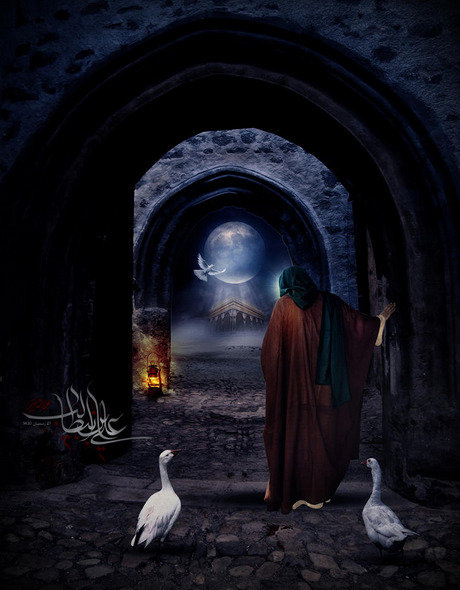
And the final of the 4 archetypes, The Lover.
An example is Princess Anna from Disney's movie Frozen. She quickly falls in love with a man she barely knows and assumes good intentions of him. She is also very passionate about her love as well as life in general, as she travelled far and wide to bring her sister Elsa back to the village. A lover's core desires are intimacy and relations. They often have passions such as art, cooking, music, and even therapy. They often feel deep emotions and find it easy to empathise with people and find a hidden meaning and beauty. Lovers are often the people who are willing to risk their lives for somebody else, whether it be their kids or spouse. They might look at the stars at night, or often look at the sunset, maybe they enjoy photography or divine meals. Yes, these are the qualities of the lover.Ritual to Manhood:
Before I address how you can begin to manifest these 4 archetypes I've just mentioned. I will briefly touch on the topic of rituals to manhood. In traditional societies there was almost always some sort of ritual where the village would set up a challenge to put a boy in and he would go through his passage to manhood. For example, the ancient Greeks would often leave a boy in the woods and if he came out alive when they came back to get him, he was now considered a man. Now, the men we have today are the boys that would have died in the woods. Another example is a Jewish boy's bar mitzvah. When he hits puberty a celebration is held to mark the boy as a man and is now eligible to take part in religious practice and worship.